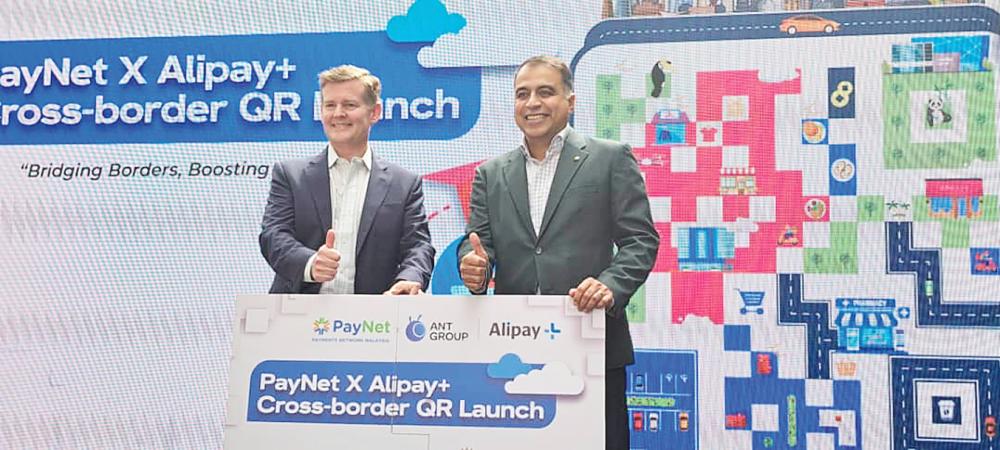KUALA LUMPUR: Payments Network Malaysia Sdn Bhd (PayNet) has partnered with Ant Group to launch its cross-border digital payment, enabling travellers from eight countries to use PayNet’s DuitNow QR in Malaysia.
The collaboration will allow travellers with Alipay+ supported wallets from Alipay (China), AlipayHK (Hong Kong SAR), HelloMoney by AUB (Philippines), Hipay (Mongolia), MPay (Macau SAR), Naver Pay (Japan), Toss Pay (South Korea) as well as TrueMoney (Thailand) to travel cashless to Malaysia.
The travellers can do digital payments via scanning DuitNow QR at its network of over 1.8 million merchant touchpoints nationwide.
The collaboration will also enable DuitNow QR users in Malaysia to make payments at Alipay+ global merchants gradually starting next year.
Currently, the Alipay+ merchant ecosystem includes tens of millions of merchants in more than 50 markets.
According to PayNet group CEO Farhan Ahmad, the collaboration is timely as the Malaysian tourism industry is now returning to a stable growth trend, that is expected to be further bolstered by Visit Malaysia Year in 2026 (VMY 2026).
“Most small merchants in Malaysia don’t accept cards, but they accept DuitNow QR. Gearing up for VMY 2026, we want to make sure that we open up these cross border channels so tourists coming in, (with) whatever wallet they have, they can use,” he told reporters after the launch of PayNet and Alipay+ cross border digital payment system today.
Moving towards VMY 2026, he said the company will work hard to ensure that Malaysia is ready to welcome tourists including developing payment mechanisms that will be convenient for tourists to support local merchants.
“This will help the small merchants in Malaysia to sell to tourists and open up the night market as well as the rich Malaysian heritage to them in an easy way.
“Similarly, we are opening up the same corridors for Malaysians travelling abroad,” said Farhan, adding that it will make payments convenient when travelling.
He added the company aims to broaden the payment method to other countries in the future, to 10 from the current eight countries.
Meanwhile, Farhan explained that the cross-border payment service will reveal exchange rates in real time, allowing customers to know the amount paid in their own currency. In addition, it will not impose any service charges.
“Currently, we have no intentions of adding on any additional tariff or charges for cross border,” he said. However, he noted that each country will impose its own domestic schemes and payments.
“Malaysia has the lowest cost (for domestic payments) as compared to any other country in the region – much cheaper than Singapore, Thailand, Indonesia, India, China,” said Farhan.









